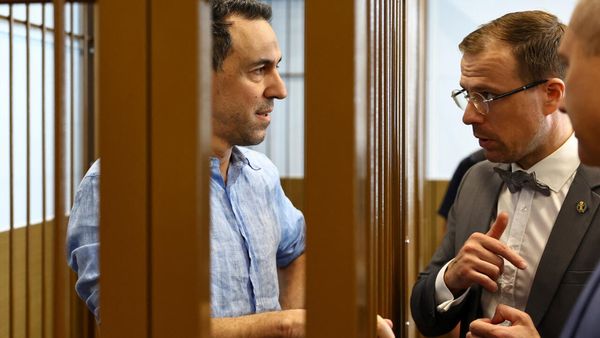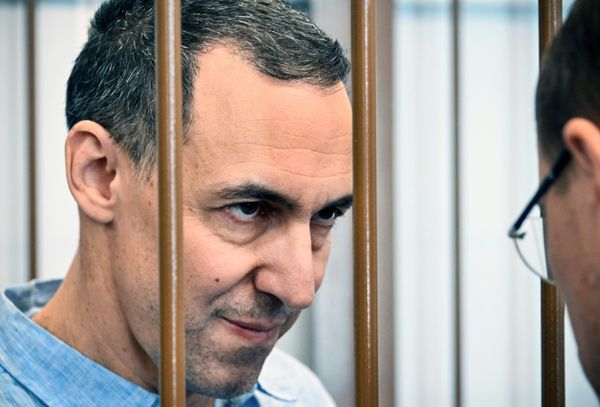
Australia’s acting prime minister has declared the government won’t take any “backward step” in pursuing the national interest, after Chinese state media said hopes of a diplomatic reset were “diminishing by the day”.
Richard Marles, who is acting in the top job while Anthony Albanese is in Europe, told Guardian Australia the new government would avoid “chest-beating” about China but admitted there may be limits to what a change in tone could achieve.
A Chinese foreign ministry spokesperson said on Tuesday that politicians should “stop making irresponsible remarks”, when asked about Albanese’s comments that China should learn the lessons from Russia’s “strategic failure” in Ukraine.
On Wednesday, an editorial in the state-run China Daily newspaper said the comments revealed Albanese’s “lack of diplomatic nous” and warned him against “letting the US-led Nato summit fill his head with nonsense”.
“Since Albanese took office, Beijing has displayed goodwill in the hope that Canberra will be willing to work with it to improve bilateral ties,” the editorial said.
“But so far, Canberra has not reciprocated with a message expressing its willingness to resolve its differences with China and put bilateral ties back on to the right track.”
Marles, who met with China’s defence minister on the sidelines of a security conference in Singapore last month, said there would continue to be “challenges” in the relationship with Australia’s biggest trading partner.
“China is seeking to shape the world around it in ways that we’ve not really seen before and that does present challenges for Australia,” Marles said at Parliament House on Friday.
“It’s really important that in dealing with those challenges, we are articulating and standing up for our national interest – and I think that’s what we’ve seen the prime minister do.”
The minister for defence said the Albanese government would seek to “engage with China, as we will engage with the world, in a sober, professional and diplomatic way”.
“We’re not going to engage in the kind of chest-beating that we saw from the former government,” Marles said.
“There will be a change of tone and that will take us as far as it takes us. But in terms of the substance of what we are saying, we will speak to our national interest and there’s not going to be any backward step on that.”
An example of that was on Thursday evening, when the foreign affairs minister, Penny Wong, issued a statement saying Australia remained “deeply concerned by the continuing erosion of Hong Kong’s rights, freedoms and autonomy” after Beijing imposed a new national security law two years ago.
Marles used a meeting with his Chinese counterpart, Wei Fenghe, last month – the first such talks in more than two years – to directly raise concerns about a Chinese fighter plane’s dangerous interception of a Royal Australian Air Force’s P-8 surveillance aircraft over the South China Sea region on 26 May.
The Australian government said the incident occurred in international airspace – and that the Chinese J-16 aircraft had released “a bundle of chaff which contains small pieces of aluminium, some of which were ingested into the engine of the P-8 aircraft”.
But the Chinese ministry of national defence has argued that the Australian aircraft had “entered the airspace near China’s Xisha Islands” – a disputed area also known as the Paracel Islands.
A ministry spokesperson said on Thursday that the Chinese military would take countermeasures whenever foreign military aircraft “come on China’s doorstep to provoke”.
Chinese military will take countermeasures whenever foreign military aircraft come on China's doorstep to provoke. The consequences of their actions are theirs to bear, China's Defense Ministry said in response to recent provocations made by Australian, Canadian warplanes. pic.twitter.com/dnsZY8KFKC
— Global Times (@globaltimesnews) June 30, 2022
On Friday, Marles said he did not yet have an estimate of the cost to acquire at least eight nuclear-powered submarines under the Aukus partnership, but acknowledged it would be a “significant sum of money”. External analysts have estimated a longterm cost as high as $171bn.
Marles said submarines were “a critical, critical component to getting our hard power equation right and to building our place in the world”. He said they were “not just about building capability in the context of conflict” but also building strategic space for trade and diplomacy.
“We’re actually building a capability through our defence forces and through these platforms for Australia to be taken seriously in the world.”
Australia’s ambassador to Washington, Arthur Sinodinos, has previously suggested that Aukus was driven by a desire to “project our power further up, rather than taking an approach that all our defence has to be a defence of the mainland”.
When asked whether projecting power in the South China Sea was part of the motivation, Marles said a “long-range capable submarine” was a platform that would put a “question mark in any adversary’s mind”.
“Given our geography, that’s what we need – and nuclear propulsion is therefore fundamentally important for us,” he said.
Marles said the lesson he took from the security agreement between China and Solomon Islands – signed in April during the Australian election campaign – was that “you’ve got to be out there doing the job”.
Marles, who was parliamentary secretary for Pacific island affairs in the Gillard government, said he hoped to travel to the region soon.
“We have to be demonstrating to the Pacific that we are interested in their future, their development, their wellbeing,” he said.
Marles agreed when asked whether that meant not just seeing Pacific countries as chess pieces in a wider geopolitical contest. “100%,” he said.
He said defence was “by no means the whole story” of the relationship with Pacific countries, but he wanted to open a conversation “where we look at their capability and their capability gaps” and ways in which Australia could assist.







